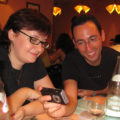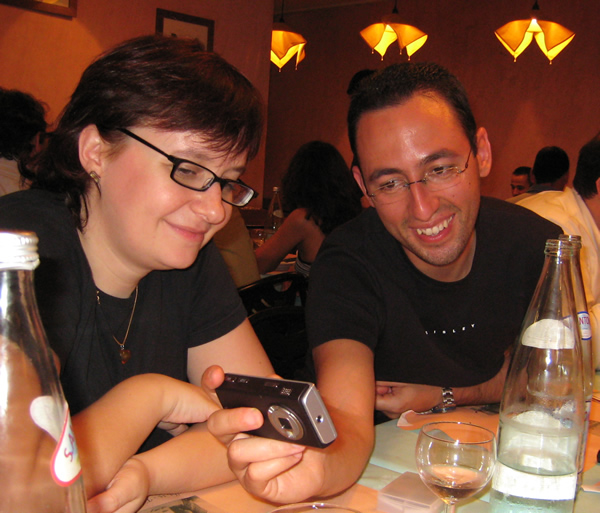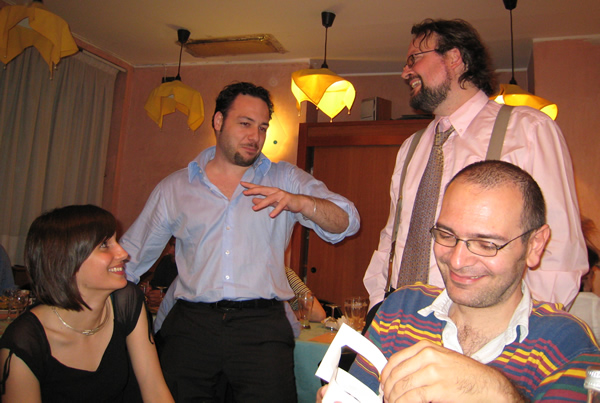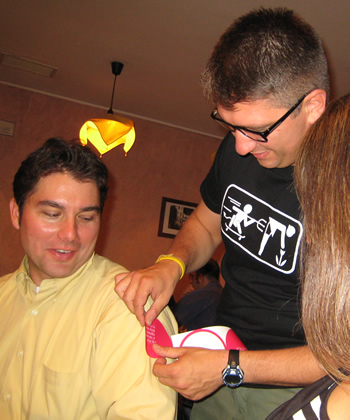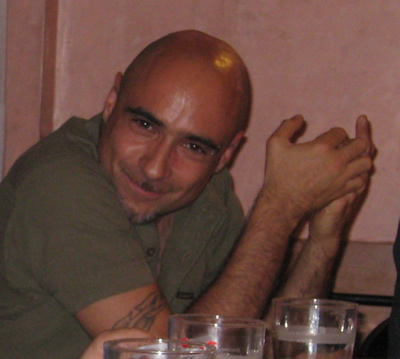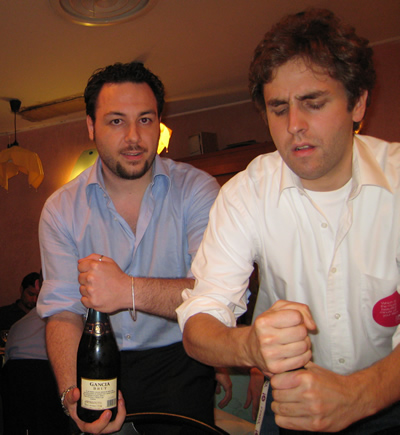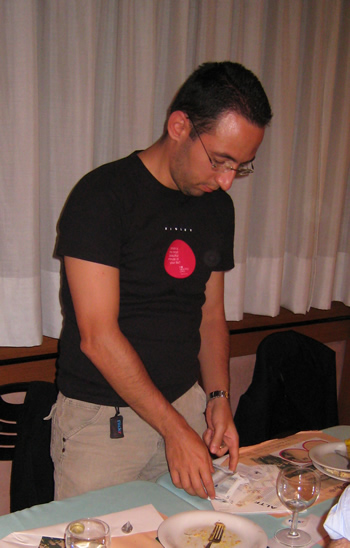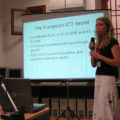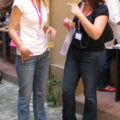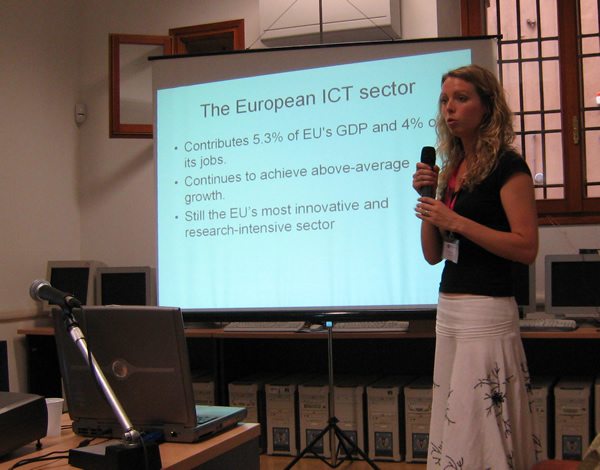Rossella and I returned to Italy the week before Christmas, having been away since June 30th. That was the longest period I’d spent out of Italy in 18 years.
I was uneasy about this re-entry, expecting it to be traumatic. I thought I would be making a decision about whether I would ever willingly live in Italy again (not right away, but maybe, someday), and I didn’t expect that decision to be easy. But, in retrospect, I had probably made up my mind months – even years – before.
The immediate impact wasn’t good. I arrived exhausted (Rossella can sleep on planes; I am not so fortunate). We hadn’t even left the airport before Enrico was telling us about a typically Italian bureaucratic kerfuffle that had arisen just that morning and had him worried.
The weather was terrible most of the time I was in Europe: cold and gray, with unusual amounts of snow even for northern Italy. The humidity sank the cold into my very bones; I felt colder in Italy than I ever do in Colorado, where the absolute temperatures are often much lower.
As usual, we spent Christmas in Roseto degli Abruzzi, the small seaside resort where Enrico’s parents retired years ago. As usual, the town was dead and depressing in winter. As usual, Ross was agitating to leave almost as soon as the Christmas presents were opened, and I couldn’t blame her, especially when she learned that a friend’s mother had died.
We returned to Lecco, where I felt trapped by bad weather and my fear of driving in Italy (I may someday get used to this, if I could only have an automatic instead of a stickshift…). I realized that I had been feeling trapped for years.
Moving to Lecco was a good decision at the time. Milan’s pollution was killing me, Enrico’s job would be mostly in Lecco, and it was a good place for Ross to spend her teenage years – she had a lot more freedom there than we would have felt safe for her in Milan.
But Lecco is also a small, typically introverted Italian town. There’s not a lot to do there, we have hardly any local friends, and those tend to be busy with their jobs and extended families. We have given lots of dinner parties, but we rarely get invited back. With Ross gone, that leaves a lot of time when it’s just the two of us.
Lecco isn’t the only problem. By any measure, my career opportunities anywhere in Italy are scarce. I’m middle-aged, foreign, female, and opinionated, in a country where it is legal to specify “young and good-looking” in a want ad, and the current prime minister has appointed former showgirls of questionable qualifications to his cabinet, for very questionable reasons.
In “shocking but not surprising” news, a friend told me she recently saw a documentary on PBS which stated that female employment in Italy is at its lowest since WWII. I haven’t yet found any online corroboration for this, but do know that equal opportunities for women in Italy are nearly non-existent.
High-tech doesn’t do well in Italy, either. Although it’s a G8 country, Italy is only number 25 in an Economist Intelligence Unit ranking of IT competitiveness. In other words: not much original is going on there. Many large American/multinational high-tech firms (Cisco, HP, Sun, Microsoft) have offices in Italy, but those are primarily sales and support sites, not places where someone like me is likely to flourish. And they’re mostly in the suburbs of Milan, which would be at least a two-hour commute from Lecco, and put me right back into the pollution that was causing me so many health problems before.
All of these factors have been on my mind for some time. I’ve found lots of evidence to support my negative assessment of my chances in Italy. I freely admit to bias, but can anyone show me evidence to the contrary?
The upshot of it all is that I’m angry – very, very angry. And bitterly disappointed. If anyone should have done well in Italy, it was me. I speak the language fluently. I understand the culture. I gave one hell of a lot to Italy (including a horrendous amount of taxes on my American salaries), and got very little in return except years of frustration and underemployment. In the end, the only way to stay would have been to throw away 20+ years of work experience – work that I truly love – and do something that merely exploited my foreignness: teach English, run tours, write “Under the Lake Como Moon”, etc.
That I will not do.
So I’m divorcing Italy.
Not my Italian husband, mind. Living apart has been very hard on both of us but, for the time being, we’ve decided to try to stick it out.
But I’m definitely divorcing Italy. I’ll visit, as long as Enrico and friends and family are there, but I don’t expect to ever live there again (NB: I’ll be surprised if Ross does, either).
This decision comes with a raft of emotions, probably similar to those surrounding a divorce. Anger. Betrayal. “I gave you the best years of my life!” Sadness. Grief.
Italy has a lot going for it still, and, for some people, it’s their ideal place, even if they weren’t born there. I don’t deny that nor attempt to dissuade them. But, for me, it’s over. And that would be a painful revelation even without the complication of an Italian husband who still lives and works in Italy.
So if I’m not very enthusiastic (to put it mildly) about Italy these days, now you know why.
NB: A year and a half later, I left Enrico as well.


